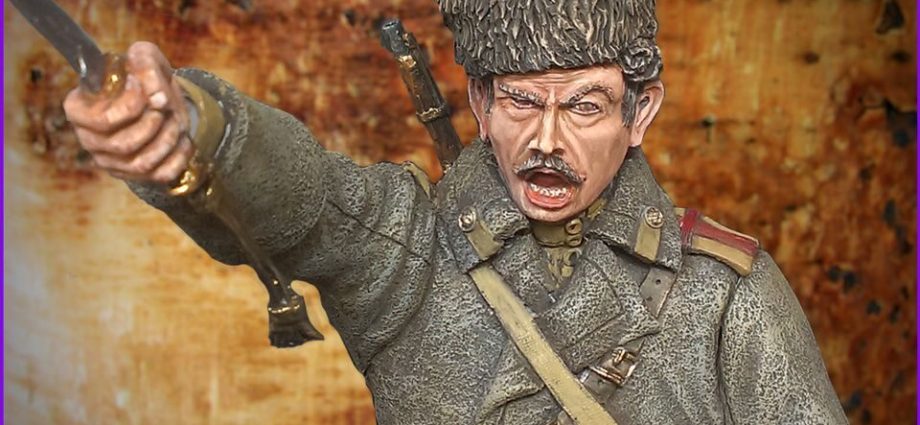It is difficult for any young person to look for himself at the turn of the era. Especially if he, like the hero of The Quiet Flows the Don, is brought up in the Cossack traditions that have been established for centuries.
The life of Grigory Melekhov seems simple and understandable: a farm, work, family, the usual Cossack service. Unless sometimes he is hindered by the hot blood of a Turkish grandmother and an explosive character, pushing him to protest against the rules. But at the same time, the presence of a willingness to marry, obeying the will of the father, and a desire to follow one’s passion, loving someone else’s wife, create a serious internal conflict.
In peaceful life, Gregory takes one side or the other, but the outbreak of war aggravates the conflict almost to the point of unbearability. Gregory cannot put up with the monstrous violence, injustice and senselessness of the war, he is grieving the death of the first Austrian he killed. He fails to dissociate, to cut off everything that does not fit into the psyche: to do what many people use to save themselves in the war. He also does not try to accept any single truth and live in accordance with it, as many did in that frontier time, fleeing from painful doubts.
Gregory does not give up honest attempts to understand what is happening. His throwing (sometimes for the Whites, sometimes for the Reds) is dictated not so much by an internal conflict, but by the desire to find his place in this gigantic redistribution. The youthful naive faith in justice, the ardor of decisions and the desire to act according to conscience are gradually replaced by bitterness, disappointment, devastation from losses. But such was the time, in which growing up was inevitably accompanied by tragedy. And the non-heroic hero Grigory Melekhov returns home, plows and mows, raises his son, realizes the male archetype of the tiller, because, probably, he already wanted to raise more than fight and destroy.
Gregory in our time
The present times, fortunately, do not yet look like a turning point of the era, and therefore the growing up of young people now does not occur as heroically and painfully as it was with Grigory Melekhov. But still, it wasn’t that long ago. And some 20-30 years ago, in the wake of the collapse of the USSR, it was just as difficult, I believe, that the growing up of the current 50-year-olds took place.
And those who allowed themselves doubts, were able to integrate all the inconsistency, paradox and complexity of the life of that time, they fit into the new era, finding a place for themselves in it. And there were those who “fought” (the redistribution without war and bloodshed is not yet our way), and there were those who built: they created a business, built houses and farms, raised children, got mixed up in family troubles, loved several women. They tried to grow wiser, honestly trying to answer the eternal and everyday question: what should I, a man, do while I’m alive?










